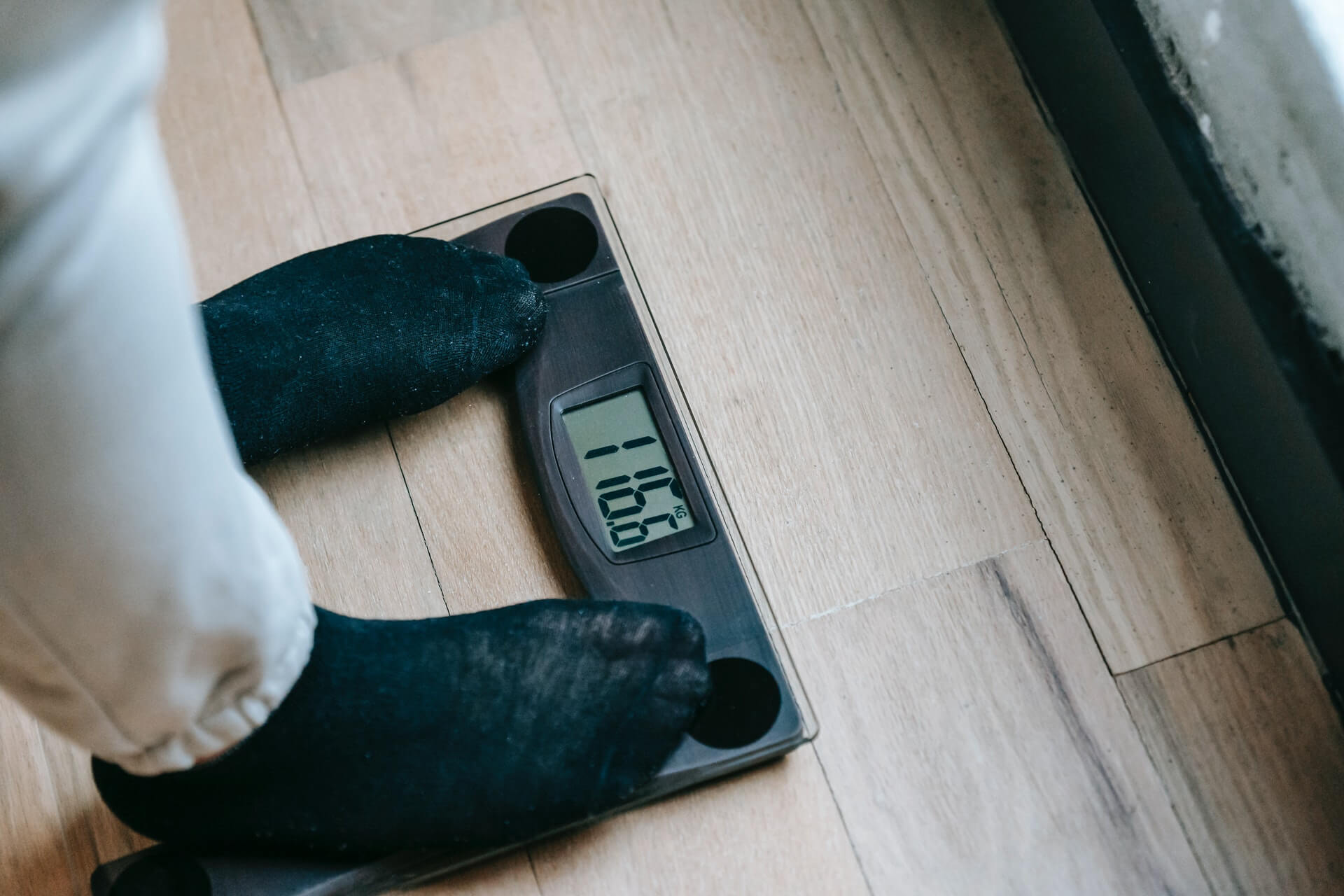Changing your diet can sometimes cause a change in the way your breath smells. A very low-carbohydrate diet, in particular, puts your body in a fat-burning state known as ketosis. This natural metabolic state releases organic compounds — called “ketones” — that appear in exhaled breath and produces a characteristic smell.
If you’re noticing a distinct odor (and taste) in your mouth shortly after starting a keto diet, you might be experiencing keto breath.
Before diving into this topic, we want you to know that keto breath is temporary and is a good sign that your keto diet is working. Here’s everything you need to learn.
What is Keto Breath?
Keto breath is a common side effect experienced by some individuals who follow a very low-carb, high-fat ketogenic diet. It refers to the distinct, fruity or acetone-like odor that arises from the breath due to the release of ketones, particularly acetone, as the body enters a state of ketosis and starts burning fat for energy instead of carbohydrates. This occurrence is a temporary and harmless result of the metabolic changes associated with the ketogenic diet.
Other symptoms, which are associated with the keto flu, may occur together with keto breath. These symptoms include weight loss (usually water weight loss at the start of the diet), headache, decreased energy, brain fog, and body aches (1).
Why Keto Breath Happens on a Ketogenic Diet?
Keto breath happens due to the production of ketones, particularly acetone, which is expelled from the body through the breath, causing a distinct odor. In a ketogenic diet, the body shifts its primary fuel source from carbohydrates to fats, leading to increased fat metabolism, otherwise known as ketosis (2).
What Does Keto Breath Smell Like?
You will notice a fruity, sweet, or acetone-like smell in your mouth. This specific odor can vary among individuals, but many would describe it as somewhat similar to nail polish remover or overripe fruit.
This odor is a result of the body’s production of acetone, one of the ketone bodies, during ketosis on a ketogenic diet. Some people may find the smell bothersome, while others may not notice it as strongly.
Another thing to note is that keto breath is different from halitosis or bad breath. Whereas keto breath is brought about by a very low-carb diet, halitosis can be caused by other factors, such as poor oral hygiene, gum disease, tobacco, an underlying health condition, and certain foods you eat (3).
How to Get Rid of Keto Breath
If you’re experiencing keto breath and looking for remedies to help manage or reduce the odor, here are some tips to try:
- Stay hydrated: Drink plenty of water throughout the day. Staying hydrated can help dilute the ketones and reduce the intensity of keto breath. In addition to reducing keto breath, drinking more water can also washes away bacteria and food particles, which contribute to bad breath (unrelated to keto).
- Chewing sugar-free gum: Chewing sugar-free gum can help stimulate saliva production, which can wash away ketones and freshen your breath. You can also suck on mints to mask keto breath.
- Brush and floss regularly: Maintaining good oral hygiene is essential. Brush your teeth and tongue twice a day, and floss at least once daily to remove food particles and bacteria that can contribute to bad breath.
- Use mouthwash: Rinse your mouth with an alcohol-free mouthwash to temporarily mask the odor and maintain oral hygiene.
- Monitor your protein intake: Consuming excessive protein may lower the amount of ketones present in your blood and increase the production of ammonia, which may worsen breath odor. Adjust your protein intake if needed.
- Add lemon or lime into your water: Squeezing some lemon or lime juice into your water can add a refreshing flavor and potentially help neutralize keto breath.
- Give it time: For many people, keto breath is a temporary side effect that improves as the body adapts to ketosis. Being patient and allowing your body to adjust can help alleviate the issue over time.
Remember that while these remedies can help manage the symptoms, keto breath is often a natural part of the ketogenic diet. Moreover, it may appear from time to time, especially in instances where you re-enter ketosis after taking a break on keto — e.g. during weekends as part of a cyclical keto diet or you have a long vacation where you eat lots of carbs.
How Long Does Keto Breath Typically Last?
The duration of keto breath can vary from person to person. For most individuals, keto breath is a temporary side effect that occurs during the initial phase of entering ketosis and may last anywhere from a few days to a couple of weeks.
As the body becomes more adapted to burning fat for fuel, and as it becomes more efficient at using ketones, the intensity of the keto breath tends to decrease or may even completely disappear.
Not everyone on a ketogenic diet experiences keto breath, and its presence or duration can be influenced by factors such as individual metabolism, hydration levels, and the specific composition of one’s diet.
Does Everyone Experience Keto Breath When on a Ketogenic Diet?
No, not everyone on a ketogenic diet experiences keto breath. Keto breath is a common side effect, but its occurrence can vary from person to person. Some individuals may notice a distinct fruity or acetone-like odor in their breath when they enter ketosis, while others may not experience it at all.
Factors such as individual metabolism, hydration levels, and the specific composition of one’s diet can influence the likelihood and intensity of keto breath. It’s important to remember that even if someone doesn’t experience keto breath, it doesn’t necessarily mean they are not in ketosis or benefiting from the ketogenic diet.
Is Keto Breath a Sign That I’m in Ketosis?
Yes, keto breath is often considered a sign that your body is in ketosis. Ketosis is a metabolic state where the body shifts its primary fuel source from carbohydrates to fats. During ketosis, the liver produces ketone bodies, including acetone, which are released through breath and other means.
The presence of the distinctive fruity or acetone-like odor in your breath is an indication that your body is producing and utilizing ketones for energy, confirming that you have entered ketosis.
If you’re not having keto breath and want to check whether you’re in ketosis without using a ketone meter, we recommend monitoring other signs. Pay attention to weight loss, increased focus or mental clarity, and a reduction in your appetite (4)(5)(6).
Can Certain Foods or Supplements Worsen Keto Breath?
Some foods and supplements can potentially worsen keto breath. Foods high in protein, especially when consumed excessively, can lead to the production of ammonia during protein metabolism, contributing to stronger keto breath.
Sulfur-containing foods like garlic and onions can also leave lingering odors in the mouth. Coffee and alcohol can lead to dehydration, intensifying keto breath, and promoting dry mouth.
Practicing good oral hygiene, along with staying well-hydrated and reducing your protein intake slightly (but not sacrificing it) can help mitigate the impact of keto breath while your body is adjusting to keto.
The Bottom Line
Keto breath may be off-putting for some individuals who experience it while starting the keto diet. However, understanding why it happens and how to reduce it can make it more manageable and motivate you to stick with keto long-term.
The good news is that keto breath eventually goes away, and may reappear only if you re-enter ketosis after a period of going off. With the numerous health benefits that being in ketosis provides, keto breath should be perceived as a minor inconvenience.
However, if bad breath persists, you might want to consider seeing a doctor to determine if you have an underlying condition.



